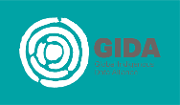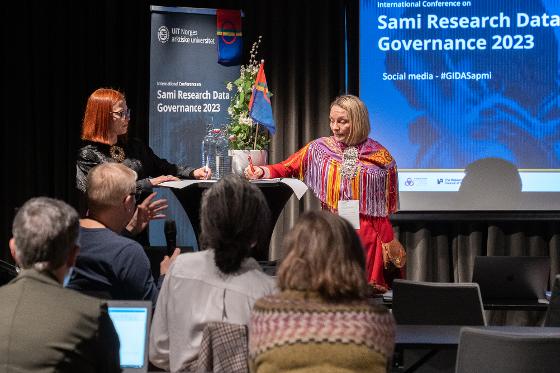GIDA-Sápmi - Sámi Research Data Governance

GIDA-Sápmi is a network established to develop guiding principles of collection, management, use, sharing, and protection of research data generated by or about the Sámi people and Sámi society.
There is an increasing awareness of, and need for, ethical and responsible handling of Indigenous knowledge and data. The general FAIR Guiding Principles for Scientific Data Management and Stewardship were published in 2016 and seek to make research data more Findable, Accessible, Interoperable, and Reusable.

The Global Indigenous Data Alliance (GIDA) is a global network of Indigenous researchers, data practitioners, and policy activists advocating for Indigenous data governance to advance Indigenous data control within their nation-states and at an international level. The CARE (Collective Benefit, Authority to Control, Responsibility, and Ethics) principles for Indigenous data governance were established in 2018 by GIDA to complement the FAIR principles.
GIDA-Sápmi
Connected to the global network, the GIDA-Sápmi network was founded in June 2021 with members from various universities, memory institutions, and archives in Norway, Sweden, and Finland. The objectives of GIDA-Sápmi include
- to promote, adapt, and operationalise the CARE principles to the Nordic Sámi context;
- to make the Nordic research community, memory and archival institutions aware of the Indigenous CARE principles; and
- to advance the discussion on Sámi data governance principles. The GIDA-Sápmi network is committed to strengthen Sámi data governance and Sámi research data for the needs of contemporary Sámi society.
First International Conference on Sámi Research Data Governance

The first International Conference on Sámi Research Data Governance was held in Tromsø i january 2023. The event also marked the official launch of the GIDA-Sápmi network.
Among the key issues identified at the conference included strengthening existing and future Sámi research data, ensuring that metadata includes information on Sami provenance, and creating Sámi data in collaboration with Sámi communities. Further, existing systems, such as data management plans, open access frameworks and data eco-systems, must respect Sámi data sovereignty and ensure culturally sensitive and appropriate research for relevant data and knowledge production.
The lack of data in Sápmi and information about Sámi communities impedes decision-making of issues involving the Sámi people and society. There is a paucity of critical information such as demographic, economic and health data in Sápmi. Due to historical reasons and concerns of potential misuse of data, ethnic-based data is not collected in the Nordic countries, which poses additional challenges for disaggregated data on the Sámi people.
With over 80 participants and international keynotes and leading experts in the field, the conference was a great success, and the network would like to thank all participants for their interesting presentations and valuable contributions.
- See conference program
- The LICCI project from Universitat Autònoma de Barcelona about the conference
The CARE principles - Indigenous rights and open data
The development towards open science and increased access to research data is seen as great progress as well as a source of tension among indigenous peoples, as there are concerns about ethical issues as data becomes more widely available. The CARE principles are proposed as a way forward.
Read
GIDA-Sápmi working group
 Susanna Siri |
 Per Axelsson |
 Research Professor Arctic Indigenous Studies University of Lapland |